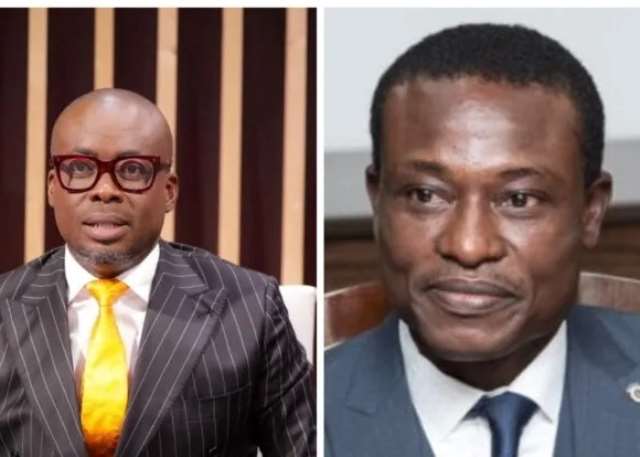The Ghana Voice,
Accra, Ghana

Landed Property as Bail: Why Paul Adom-Otchere’s Detention Sparks Bigger Questions
The Ghana Voice 01-08-2025As broadcaster and former Board Chair of the Ghana Airports Company Limited (GACL), Paul Adom-Otchere, spends another night in custody, a wider public conversation is unfolding — not just about the corruption allegations he faces, but about the very idea of landed property being used as a condition for bail.
Mr. Adom-Otchere was invited by the Office of the Special Prosecutor (OSP) over a revenue assurance contract at the GACL that is now under investigation for possible procurement breaches. He arrived at the OSP headquarters as requested, was questioned, and formally charged — but was not allowed to go home.
Why?
Because he couldn’t meet the bail condition: he was required to present two landed properties in his name, and according to sources, he told the investigators he owns none.
For many Ghanaians, the idea that a man who once chaired one of the country’s biggest state enterprises owns no property in Ghana is startling. For others, it raises sympathy: is it fair to keep someone in custody simply because they don’t own land?
But according to legal scholar Professor Stephen Kwaku Asare (Kwaku Azar), this isn’t just about punishment — it’s about strategy, leverage, and truth-testing.
Why Ask for Landed Property?
Prof. Azar explains that requiring suspects to present land they own is not unusual in high-stakes corruption cases. In fact, it’s a powerful tool for investigators. Here's why:
- It puts skin in the game: If someone must risk their own house or land, they’re less likely to abscond.
- It forces honesty about wealth: If a public figure says they don’t own land, it invites further scrutiny — how have they lived, travelled, and managed public resources?
- It exposes hidden assets: If investigators already suspect someone owns land secretly, asking them to use it for bail can be a trap — silence or refusal raises red flags.
- It keeps bail serious: Requiring personal property stops politically connected suspects from getting friends or business allies to bail them out easily.
Most importantly, land roots the suspect in Ghana. You can’t hide it or move it to Dubai.
But It’s Not All Black and White
Still, Prof. Azar is quick to warn that this approach has its risks.
- Not everyone owns property, and if someone genuinely doesn’t, they could end up in custody even if they pose no flight risk.
- In high-profile cases like Adom-Otchere’s, it can look political — as though the system is trying to make an example of someone.
- It doesn’t always catch the big fish — people who’ve hidden their wealth well won’t be trapped by this condition.
- A court might step in and say, “this condition is too harsh” if it’s not matched with solid evidence.
- And public sympathy can shift. A once-neutral public could start seeing the detention as “unfair” or “overly punitive”, especially if the suspect cooperates with the investigation.
So, What’s the Endgame?
According to Azar, requiring landed property as bail is a high-stakes game. It can expose hidden truths, prevent people from fleeing justice, and show the public that serious crimes come with serious consequences.
But it can also backfire — especially if it appears to be used more for pressure than fairness.
In Paul Adom-Otchere’s case, it’s clear this is more than just a legal formality. It has become a test — not just of law, but of trust, transparency, and accountability in public life.
Whether Mr. Adom-Otchere eventually secures bail or remains in custody longer, one thing is certain: this case has opened a conversation Ghana urgently needs to have — about how we treat corruption suspects, what justice really looks like, and who truly owns what in this country.
